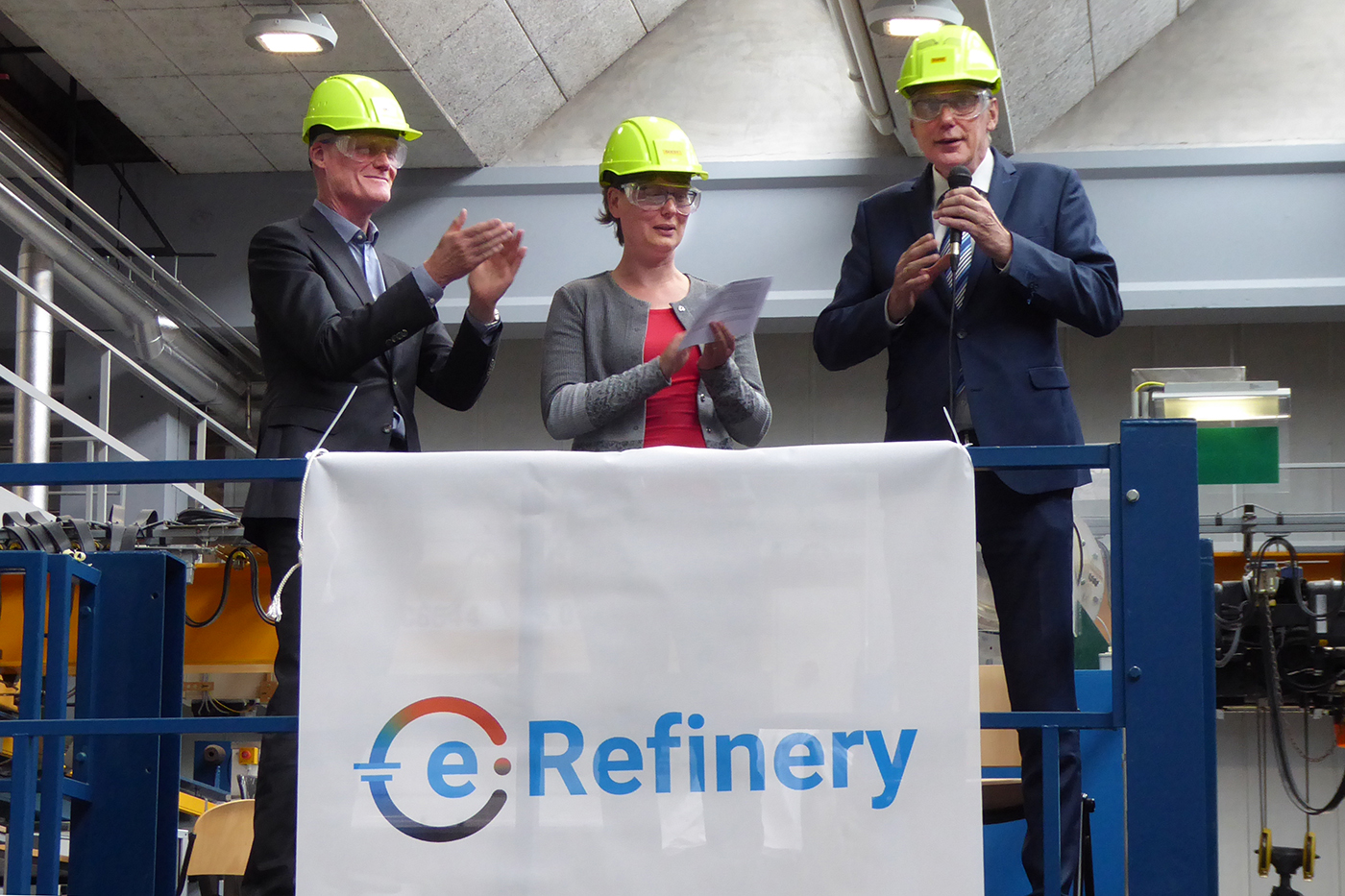Driven by the Climate Agreement, the chemical industry has to switch from fossil feedstock to renewable sources and electrical energy. The TU Delft e.Refinery initiative brings together the research on the sustainable production of fuels and chemicals from four Faculties (TPM, Applied Sciences, 3mE and EEMCS). It was presented last Tuesday.
Lucas van Vliet, Paulien Herder and Theun Baller at the opening ceremony. (Photo: Jos Wassink)
The idea is simple enough. Instead of mining large hydrocarbon molecules from fossil sources and cracking these into versatile small sizes, the new electric refinery takes small molecules from water, air, and biological sources like agricultural waste or manure, cracks these and synthesises the fragments into basic industrial feedstock such as methane, carbon monoxide, hydrogen, ethylene glycol, or ammonia.
Powered by electricity, these processes may be used to buffer fluctuations in the future power grid. The e.Refinery programme aims to develop the processes that could liberate society from its current addiction to fossil fuels and feedstock.
The e.Refinery programme is so vast and wide that at Tuesday’s presentation researchers were restricted to pitches of only a few minutes long. Professor Wilson Smith (Applied Sciences) develops electro catalytic processes that fuse small molecules like H2O, N2 and CO2 into basic chemical building blocks. His research into the best catalysts and material properties for the reactor take place at lab scale.
‘For the moment, fossil fuels and CO2 emission rights are too cheap for sustainable processes to have a chance’
Upscaling of promising processes from lab scale to the semi-industrial level is Professor Wiebren de Jong’s specialism. At the process and energy group of the 3mE Faculty, De Jong picks up processes from research, scales them up and brings them to a higher technological readiness level by making them more efficient and intense.
Professor Andrea Ramirez studies the political issues and the economic conditions for sustainable technologies at the Faculty of Technology, Policy and Management. For the moment, she said, fossil fuels and CO2 emission rights are too cheap for sustainable processes to have a chance. She compared dropping sustainable technology into industry to a multiplayer Tetris game which gets more complicated as time goes on. “It’s a very complex picture, but not more complex than what we’re doing right now.”
The e.Refinery programme is more than research, said Professor Paulien Herder (TPM) at the opening. It also includes educating the future workforce, and close collaboration with industry. “As always,” said Herder, “it’s TU Delft’s mission to contribute to a modernising industry.”
Read more on the e.Refinery website
Do you have a question or comment about this article?
j.w.wassink@tudelft.nl


Comments are closed.